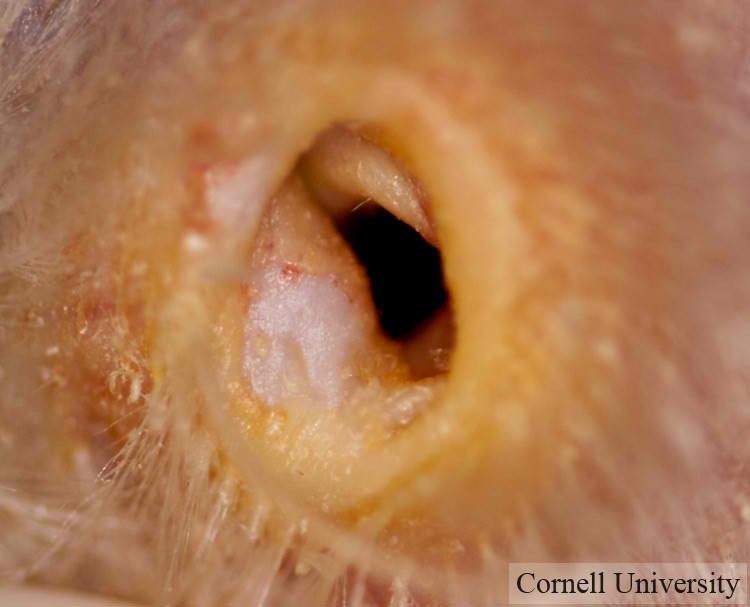You did not come across mean whatsoever and I hope that I did not. I am very direct and that sometimes is perceived as mean but I really do care and feel very sad for your girl. Something you should know as well as a few of those lurking on this thread....neither Speckledhen or I are cull happy ladies. We have both nursed sick and injured birds, sat up with them all night, hand fed them, consulted vets and I have even taken three of mine to the vet, paying far more at the vet than what I would spend buying 20 more birds each time. Speckledhen worked diligently on a little cockerel with an injured hock that had a will to live like no other bird I have heard of...she got him healed and he was crippled for his entire life thereafter....from 20 months old until his death recently...4 years she cared for him daily. She has also sat on the phone with me listening to me cry because I could not save one of my birds. So trust me when I say that telling you to cull her is not just an off the cuff statement. We are not "production breeders", we love our birds and enjoy them and raise babies for the enjoyment of it.
I had frizzled seramas and bred them....yes your girl is different in that respect but it has nothing to do with her ear. As you say her ear is normal and I being open-minded to it being a bad picture, we will lay that issue aside but her face and eye are another story completely.
Information I have received from not only my two vets I have seen over the years but vets I have consulted with over the phone....several things that are signs of illness or disease are
Colored and/or thick discharge from eyes and nostrils;
Congestion, wheezing or gurgling in the respiratory system ie with breathing;
Consistence discolored or unusual feces;
Swelling of facial tissues, comb, wattles, and inside the mouth and throat.
Suddenly changes in behavior, activity level, appetite and appearance.
They also gave me the constant reminder that genetically, chickens are predisposed to hide illness until they can no longer do so. They are in essence a prey animal so any display of weakness makes them vulnerable. It is simple rules of nature. So most often when a chicken begins showing symptoms, they are already pretty sick. They hide illness plain and simple. I watched my silver laced wyandotte recently wither away before my eyes from internal laying issues...running around like normal, eating like a pig as usual and no symptoms except she stopped laying and felt a little thinner until 3 days before she died.
So what does all this mean? It means your girl may have just presented symptoms for you to see but it has been ongoing for much longer. The other issue that you should be aware of is that while you may "cure" her eye discharge, it will most likely not be cured but merely made dormant. Chickens can be carriers and show no signs or symptoms of disease but spread it to others. Some may die and some may not but they will always have the disease and will give it to ever other bird they come in contact with. Worse...you could unknowingly pass that disease on to flocks nowhere near your own simply by going into your coop and doing chicken chores, leaving and going to the feed store and taking micro bacteria with you on your shoes or clothing, leaving it where you go. Some other chicken owner comes in and walks through it, goes home to their flock and walks inside their coop and voile' you have just spread it to their flock. Very few people take the time or trouble to practice good bio security which is really simply to do. For example...have one pair of coop shoes. Those shoes are the only ones you wear into your coop and you do not wear them inside the house or vehicle. Clean clothing also...I have "chicken clothes" and these are specific clothes that I wear for chicken chores and such and I do not wear them any other time. When I visit friends who own birds (Speckledhen, Braclin or swaps) I have shoes in my vehicle just for that. Shoes that get disinfected before and after I wear them. I actually have two pair..one for Speckledhen's and one for Braclin's. They are in ziploc baggies in my Jeep. Yes it can seem like a pain in the arse but I love my birds and I do not want to risk them or my friends birds. Sadly, it has nothing to do with how much you care about your birds or how well you care for them, it is just like taking precautions when flu season comes around...disease is everywhere so you do the best you can.
As far as your girl is concerned...only you can decide but make your decision knowing that you could well be deciding the fate of your entire flock and future flocks with your decision. Is one bird worth your other beloved birds? That may seem like a drastic statement but it is simple fact.
Good luck to you, I know it is not an easy decision because the tough ones never are.



